If you are looking for ways to expand your marketing options, or if you don’t have enough land to grow extra produce for the market, there are still plenty of options! These 85 non-produce products can make you a stand-out at your farmer’s market!
Backyard farming is about so much more than just veggies and fruit… and your farm stand should be too! Backyard farmers can produce an abundance of food and products using the items they grow. Even if you are limited to a small garden space, you aren’t limited to the amount of amazing products you can create!
A little creativity can go a long way in impressing your customers with high-quality, handcrafted and locally sourced products.
After all, it’s not just about the fruits and veggies anymore!
Make your farm stand the talk of the market this year with these 85 drool-worthy product ideas!
Always check your state and local regulations regarding the marketing and sale of cottage foods and other handmade goods. If you have questions, check with the good folks at your local extension office.
- Fresh eggs (chicken, duck, quail)
- Raw milk (check with state restrictions)
- Raw honey
- Honeycomb
- Beeswax
- Cut flowers
- Lavender
- Dried herbs
- Veggie starter plants
- Hanging baskets
- Dried gourds for crafting and decoration
- Dried glass gem corn for crafting and decoration
- Dried beans
- Nuts and seasoned nut mixes
- Dried edible seeds (sunflower, pumpkin, quinoa), seasoned or raw
- Potted flowers
- Berry starts
- Potted medicinal herb plants
- Mistletoe, holly boughs and pine boughs (great for Christmas markets!)
- Loose leaf herbal tea blends
- Soaps
- Lotions
- Chapsticks
- Homemade bread
- Homemade pies and pastries
- Homemade jellies and jams
- Homemade BBQ sauce

- Fresh or canned salsa
- Herb & salt blends
- Smoked fish
- Fresh squeezed lemonade
- Fresh-squeezed and bottled juice
- Hand-pressed apple cider
- Homemade wine
- Dried medicinal herb blends
- Canned marinara sauce
- Fresh pesto
- Popcorn or kettle corn
- Herbal salves
- Herbal tinctures
- Homemade extracts (vanilla, orange, lemon, etc.)
- Heirloom seeds
- Fresh floral wreaths
- Seed bombs
- Beeswax candles
- Home-roasted coffee beans
- Home-roasted nuts and seeds
- Homemade fudge
- Homemade granola bars
- Homemade jerky
- Homemade fruit leather

- Dehydrated fruit
- Mushrooms
- Shitake mushroom inoculated logs
- Freeze-dried fruit and veggies
- Olive oil infused with fresh herbs
- Homemade apple cider vinegar
- Dried sage smudge sticks
- Homemade applesauce
- Homemade ketchup
- Canned pie fillings
- Carnivorous plants
- Succulent gardens
- Fairy gardens
- Bonsai trees
- Flower bulbs
- Worm hotels for vermicomposting
- Homemade compost tea
- Hand-built bee boxes
- Hand-built raised garden beds and window boxes
- Homemade almond milk
- Fresh yogurt
- Fresh cheese
- Homemade kefir and kefir starter
- Kombucha

- Spun and dyed wool
- Natural coffee creamers from fresh milk
- Herbal bath salts
- Aloe vera and aloe plants
- Homemade nut butters
- Homemade butter with fresh herbs
- Homemade salad dressings with fresh herbs
- Infused vinegars
- Fresh guacamole
- Seasoned kale and zucchini chips
What are you selling this year at the farmer’s market? We want to hear! Share in the comments below!
Loved It? Pin It!
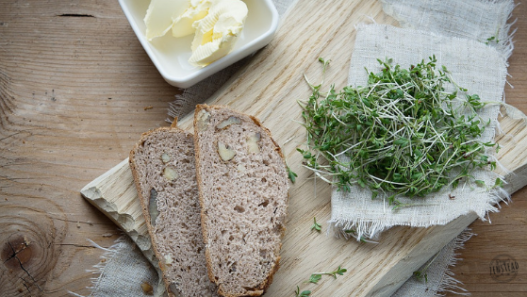
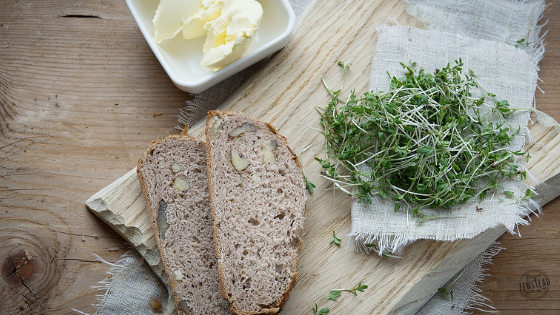
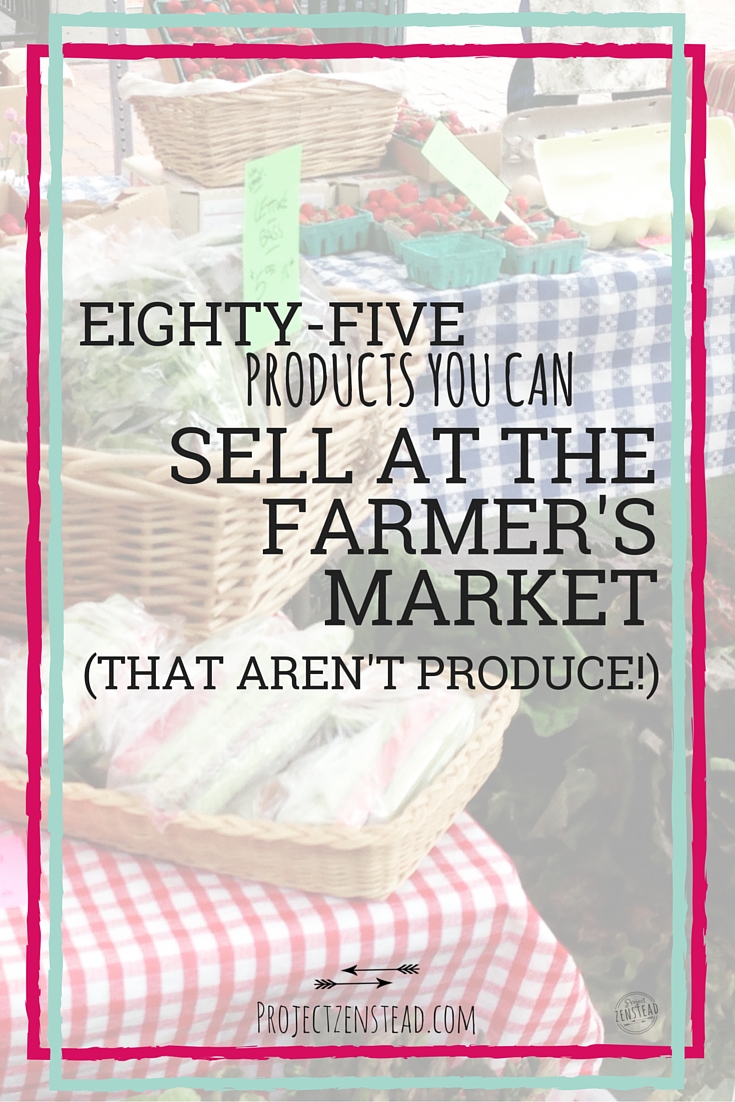
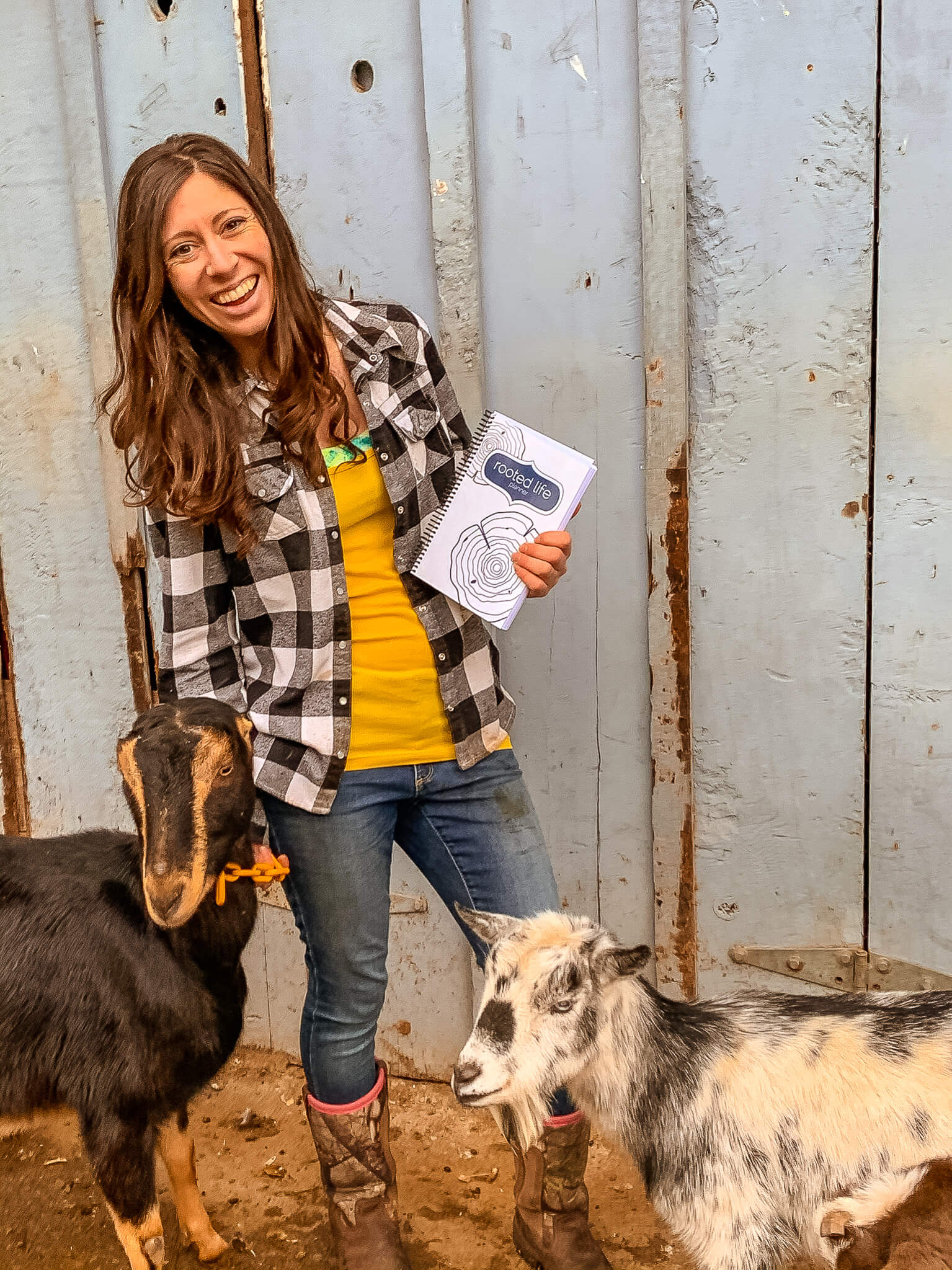


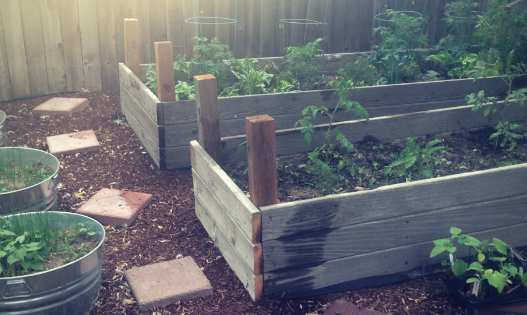
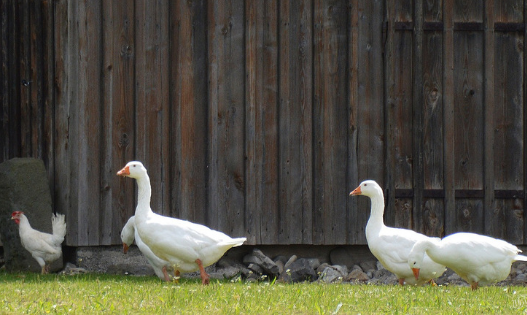
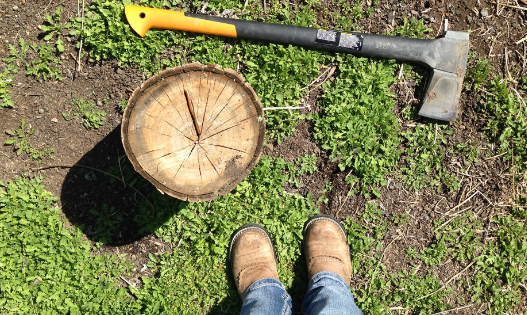
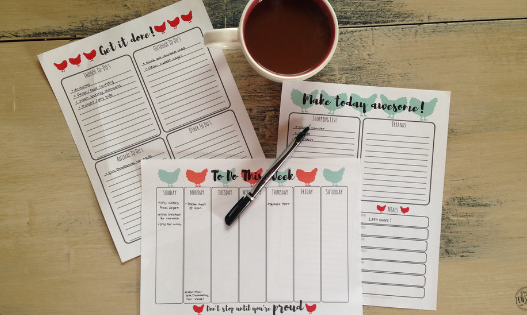
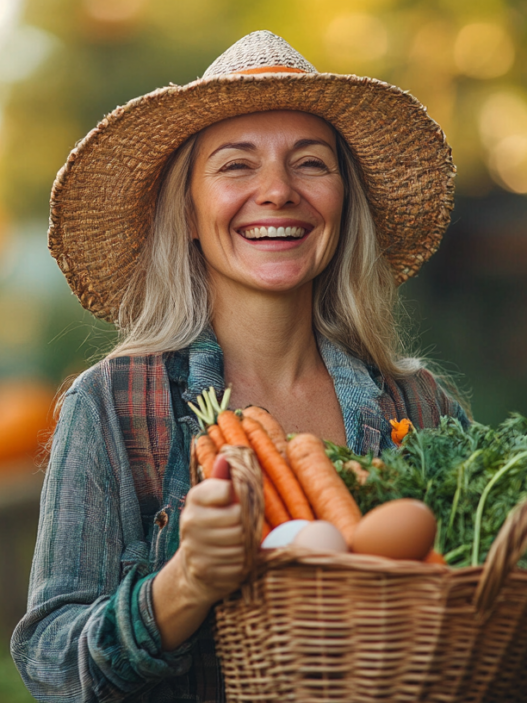
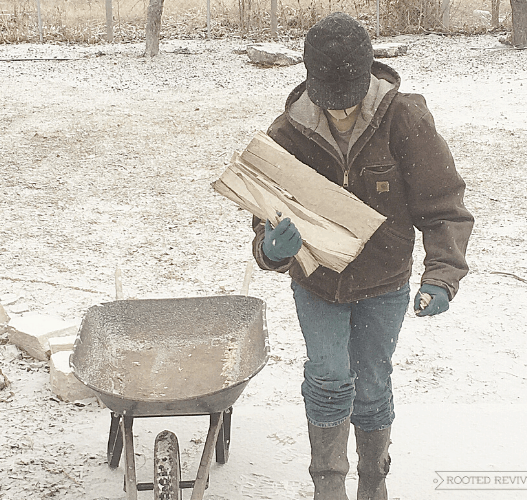
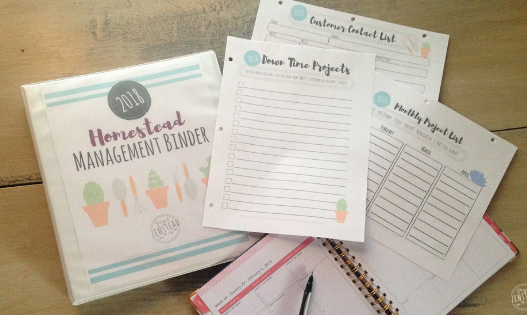
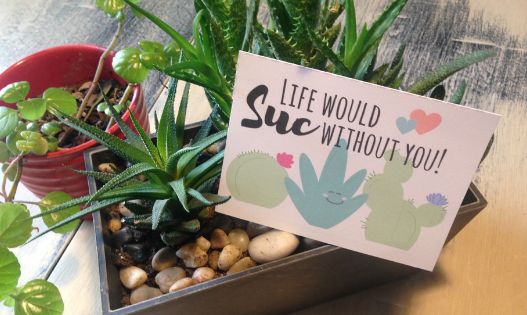
This is a great list! I’ve been homesteading for about 20 years, and I wouldn’t have thought of much besides eggs and flowers.
I’m glad you enjoyed it, Rozanne! I hope it helps sparks some new ideas so that you can rock at the farmer’s market! Best of luck to you!
You cannot legally sell home canned tomato products. This list is severely flawed!!
In many states, you can sell tomato-based products as long as they are produced in an approved kitchen. I know of several people who have approved kitchens in their homes or they rent space at another establishment to produce their products. Each state has different regulations for cottage foods, which is why at the top of the article it states that you should always check your local regulations and talk to your extension office.
We make wine from wine kits, do we need a license in w v to sell it at the market
Hi Belinda!
First off – how fun! I can’t wait to start making my own wine! 🙂
Secondly, I believe that most states do require a license to distribute and sell alcohol. However, most seem to be pretty lenient about home brewing as a hobby for your own consumption. We have some local wineries that sell at our farmer’s markets here in Idaho and they do have licenses. I’ve included some links that are specific to WV that should help you out or at least get you in contact with someone who can answer all your questions 🙂
Best of luck to you!
https://www.wvdhhr.org/phs/food/Farmers%20Market%20Brochure.pdf
https://www.homebrewersassociation.org/homebrewing-rights/statutes/west-virginia/
http://www.abca.wv.gov/Pages/faq.aspx
Hi! I am so excited to read your post, and it looks like you live in Idaho! The reason I came across your blog is because I was looking up farmers market ideas. I am moving to Idaho with my husband, 2 children and one on the way! I want to get involved in the local idaho farmers market. I have a passion for homesteading. I am nee to all this and am just getting started so if you need any help with your business i would love to chat. I was a hair color specialist but i would like to be a stay at home mom and start my own holistic business or be an assistant to someone else! My email is [email protected]. if you have any resources or need help please let me know.
Sincerley, Ashley
Hi Ashley! Yes, I do live in Idaho! That’s so exciting – it sounds like you are starting a whole new life when you love here! I will send you a message soon 🙂
Thank you for this binder! I’ve been looking for something like this, but never thought I’d find exactly what I needed! I love the whole thing! You have also put the little things in that are easy to forget about! THANK YOU!
Allison Alexis
Thank you so much, Allison! I am so happy to hear that you love it and are enjoying it! 😀
Have a fantastic day!
Wow, now I feel even better about launching my de- puffy match green tea and strawberry eye gel on ETSY. I think I’ll get myself into the farmers market locally- to see how my handmade item does. Very nice and truly helpful post! Oh btw I would love it if you visit me on https://www.etsy.com/shop/raphaskinwellness. Ty!
Very cool products! I can definitely picture these being a hit at a farmer’s market! Keep up the awesome work and good luck at the market! 🙂
can you please tell me where you get your soap molds with the types on the soap in the photos? I would like to give soap making a whirl and just can’t find a mold that I like… That one I REALLY like.
Thanks,
Hey Jeannie! I would love to take credit for the beautiful soap, but it’s a borrowed photo 😉 But if you search Amazon for soap molds, they have some beautiful ones! Some of my favorite are the ones that say “100% Handmade”! Check it out and definitely give it a try!!
Oh! Also Bulk Apothecary is another great site to check out that I forgot to mention. They have similar ones to the ones in the picture. Here’s a couple links!
http://www.bulkapothecary.com/guest-rounded-lavender-soap-mold/?gclid=CJXLyaSptNMCFQ5qfgodemkGJw
http://www.bulkapothecary.com/lavender-tray-soap-mold/?gclid=CK_JpMSptNMCFU6RfgodoO0AVA
I’m getting ready to build a small produce stand on my easily accessible property in Bartlett,NH that includes an open field that gets lots of good sun all summer.
Never done this so taking a class on raised beds this week. Any idea how many sq ft of garden space I should plan for. I thought of making four 4x8x12″ raised beds. Can I grow enough in that space to sell?
Hi Laura! That is a great space to start with! Honestly, it is going to vary greatly depending on what you grow and the methods you use to grow it. Start looking into intensive planting methods which allow you to produce more in a smaller amount of space. John Jeavon’s Grow Biointensive method is a great place to start – I’ll post a link for you at the bottom of the comment. Also, be sure that you are using rotating crops to get the most out of your growing seasons. You may also want to look into growing larger crops (like squashes, cucumbers, etc) vertically using trellises so that they take up less ground space. If you don’t produce as much this year as you want, you will have a great place to start from next year and you will have a better idea if you need to expand or not. Best of luck to you!
http://www.growbiointensive.org/grow_main.html
Hi! Great list, but unfortunately in states like New Jersey, there are cottage laws that prohibit a person from making and selling food goods from home. This includes anything that you would consume, including dried herbs and teas ?! They worry that it would be too much competition for the big guys! Very frustrating!
Wow that is super frustrating! I did some snooping around after reading your comment and it looks like they have tried to pass cottage food laws a couple of times so that it would be legal for a home producer to sell their goods. Unfortunately, it looks like one senator in particular, Senator Vitale, has blocked the bill. Time to round up everyone you know and start writing letters and calling his office! I hope that the bill gets passed soon for you guys!
What about bath teas? (herbal tea used for the bath tub… not sure if there’s another name for it)
Great idea! I have also seen that “flower baths” are getting popular! Using flowers that have soothing properties, like chamomile or calendula mixed with other herbs, could be a great hit!
We have cottage Laws in Georgia that regulate sales from home. It HAS to be in an approved home kitchen (is really like to do my canning and stuff in an attached kitchen to my produce “stand”). It also won’t let you sell anything that should be pressure canned. From the short list that it allows, it doesn’t seem worth the certification process to be honest. ?
Yes, each state has differing laws. It’s definitely important to be familiar with the laws in your state and to understand what you can and cannot do without licenses. There might be other products that you will be able to sell that aren’t as strictly regulated. Or, many extension offices/universities have commercial kitchens that you can rent by the hour or by the day to produce your product if your home kitchen isn’t a viable option. Hopefully you can find a balance and products to offer that are right for you!
Dang right there would be serious competition! Most store bought brands are nasty. Even produce has gone downhill. But then again I’m a bit picky about food. I love food too much to eat second rate, and call it good.
I couldn’t agree more!
Thank you for the great ideas! I knew alot of them, but there are so many to choose from! I’m from Michigan, and I believe one can sell some things under the cottage law. I’m certain your ideas will help alot of people.
Thanks, Juanita! I hope you have a great season at the market!
We’ve been participating in our little town’s Farmer’s Market this year and hubs makes peanut brittle. He sells out every week! I never dreamed people would flock to our booth like they do.
What a great idea! I love peanut brittle! 😀
We sold produce baskets.
Great idea! Nice way to use up any extras too, I bet! 🙂
Great list, but please make sure you check with your state for regulations, many of these things on this list require a license of some sort.
Yep! Always check first as each state is different! 🙂
Puppies, chicks, bunnies and ducklings too! Cookies and coffee.. Ice cold water, tea and soda. Home made greeting cards and craft gifts.
Love those ideas! The cookies and coffee would definitely lure me in! 😀
Puppies, bunnies? We are working hard to end backyard breeding and the abuse it causes. Lots of other great cruelty free ideas though.
Backyard breeding isn’t bad of itself. No reason to create war on people trying to make a side income on that. Many backyard breeders are totally capable of good breeding and care of their animals! I agree there are some who don’t, but there are people who don’t drive well and they are still on our roads. We can’t stop the whole show because of a few bad actors, please don’t make more legislation that limits freedom of the people to earn a living and provide for their family!
Canvas art – local artist from Palmerston, Ontario 🙂
Yes! I wish I had those skills! 😀
I see you are in Idaho! I am in Arco and starting a Farmers Market this year… It is TOUGH!!!
I love these ideas and have shared them to our ‘Up-Wind-ers Farmers & Artisans Market’ page in hopes to spark a few more vendors!
Thank you!!
I am a new vendor for the local Farmer’s Market here in Plaquemine, LA. The excitement that greeted me when I revealed what my product is was overwhelming AND surprisingly enough, was not on your list. My product is homemade dog and cat treats, muffins, cookies and celebration cakes, complete with icing. I have plenty of support and help for which I am very grateful, as I know I am going to need it. I have 2 months to do research, find vet approved recipes, packaging ideas, etc. I can hardly wait!
Wow! I LOVE that idea! And I bet your customers absolutely adore it too! How fun – now I want to go get a mini cake for my dogs ?
Many of these would have you arrested if you do not follow local health codes and FDA guidelines for producing items in commercial FDA inspected kitchens and other local health and food production laws. Please be cautious with your advice.
Yes, we all have to make sure whatever we produce and sell meets local guidelines and laws. Each state varies greatly! Which is why, as I state in the post, it’s always important to check with your local extension office if you have any questions.
Per my post: “Always check your state and local regulations regarding the marketing and sale of cottage foods and other handmade goods. If you have questions, check with the good folks at your local extension office.”
This is a fantastic list, thanks! One suggestion and one question. Maybe mulch, too? I have a lot of big trees and bought a mulcher for myself, but there might be enough to sell as well. Also, have you ever seen wild herbs sold at farmer’s markets, and if so which ones? Thanks!
Bagged mulch is a great idea! Especially if you sell it in conjunction with other garden items like starter plants, perhaps? I mean, can anyone ever have enough mulch?! I have occasionally seen some foraged herbs and other foraged goodies (like usnea, mushrooms, elderberry) sold in markets. I’ve heard mixed reviews about how easy it is to convince people to buy the “weedier” herbs (like dandelion, wild garlic, etc.) but I have heard of people making pestos out of wild weeds and herbs selling that! I love how the possibilities are truly endless! There really is a niche for everything – you just gotta find the right product for the consumers in your area! 🙂
Thank you is not enough to someone who gives hope in this day and age. I always believe that the words “cannot” go forward is not true, unless you have exhausted all the possibilities of succeeding.
I feel I have a chance to try selling at a farmer’s market, because you have given me a chance through your list and the contributions/ideas from your audience.
Mahalo (Hawaiian for thank you) all.
Julianna,
Where there is a will, there is a way! And, girl, it sound like you’ve got the will! 😀 I also truly believe we can all accomplish amazing things if our hearts and minds are in the right place. Keep pushing and you can make incredible things happen! Best of luck to you!
I’m selling artisan jams and jellies (Mulled Cranberry Jelly, Christmas Jam, Spicy Peach Jalapeño Jam, and Wild Sand Plum Jelly) at the Holiday Farmer’s Market
Those flavors sound divine! I love that idea – perfect for the holidays! Best of luck with the market!
Excellent list of items!
Great list. We are starting a small family grocery and going through your list helped me pick up a few ideas I hadn’t thought of. Following the cottage food laws of course, but going from an angry commenter – from what I’ve read jail time isn’t really what they’re after if you break the rules. It’s more like a forced shut down and “maybe” a fine. But I’m in Texas, so my research has been focused on my state. Just wanted to put that out there because I know the prohibited list includes some things I didn’t expect and just in case you’re like me and think oh no, what if I accidentally sell something I’m not supposed to?! You’re not going to go to jail. At least not in Texas. ?
Great point and I’m so glad you shared it! And I do think it holds true for most beginner farm marketers. Now if you keep doing it, I’m sure there are harder consequences! But, at least in the states I’ve lived in, there are amazing programs to help you figure out your product and how to produce it in a safe and efficient manner. Plus, the extension offices are truly so helpful when it comes to figuring it all out and what is/isn’t okay. So glad that you are seeing the same thing in your state!
Can I sell organic quiches and herb wreaths?
Hi Susan! If you aren’t sure what you are allowed to sell, you can always check with your county extension office. I’m going to bet that the herb wreaths would be fine but the quiche may need some additional approvals as food items usually fall under cottage food laws which vary by state. Sure sounds yummy though! Best wishes!
Thank you for the very cool list. I live in Oregon and can’t find anything regarding making Extracts. Do you know where I can find the requirements for making Extracts to sell at farmers markets.
The best place to start is by contacting your local county extension office. They will be able to guide you in finding resources and help you navigate any regulations that your state may have. Best of luck!
would I be able to sell my ceramic bowls and platters?
I’m sure you could! Each local market will have different rules as far as what can be sold, but most accept pottery vendors. 🙂